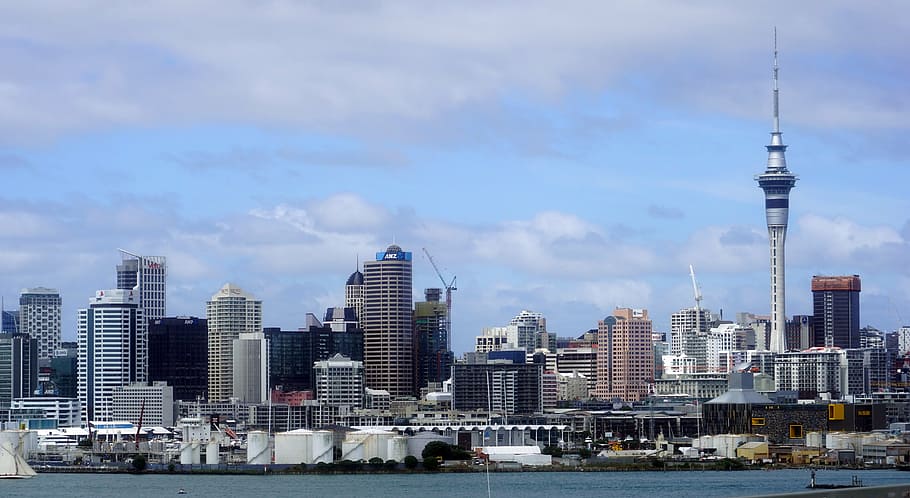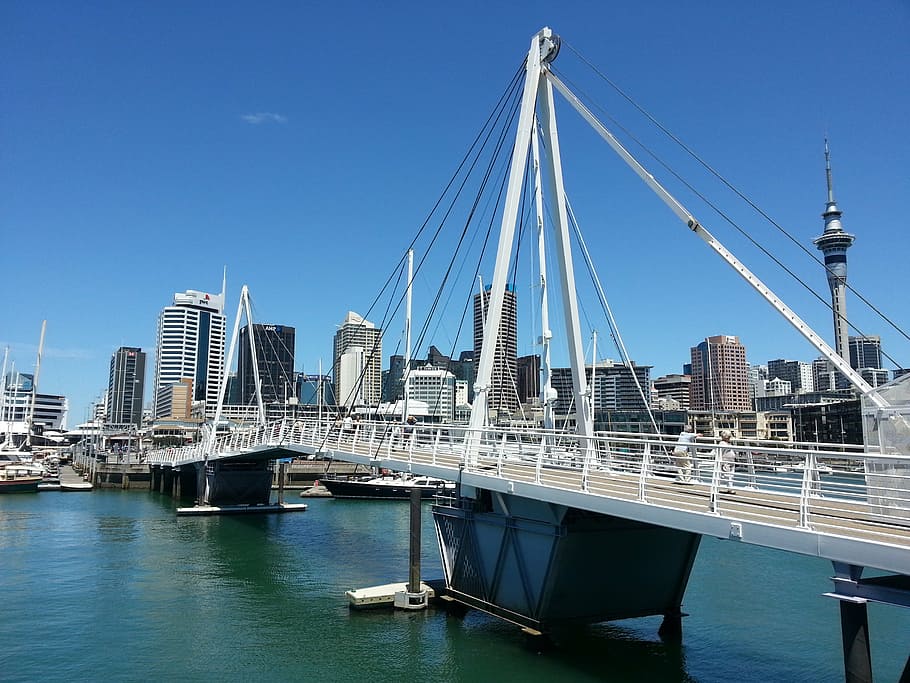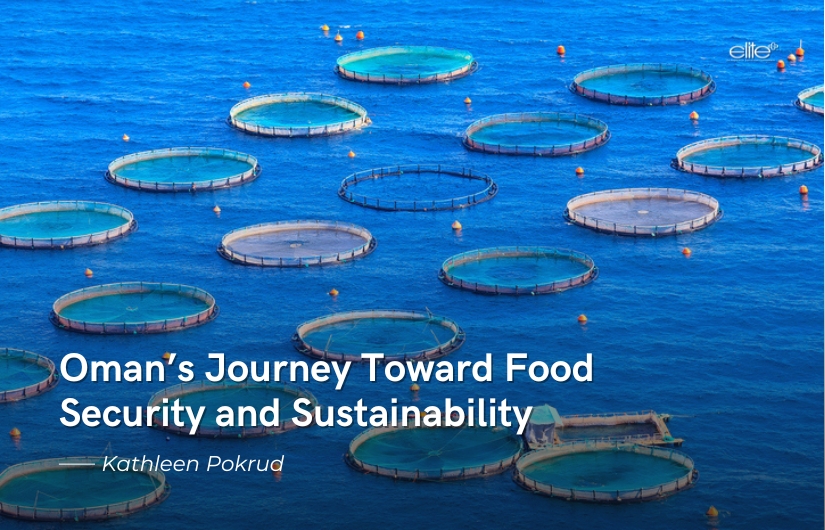New Zealand topped the World Bank’s annual study for ease of doing business among 190 economies for the fourth consecutive year, according to the “Doing Business Report 2020”. The country has one of the lowest levels of corruption in the world with Transparency International's 2019 Corruption Perception Index giving New Zealand a mark of 87 out of 100, tied first with Denmark out of 180 countries. Meanwhile, Its abundance of natural resources and scenic beauty only make this dazzling island nation even more attractive.
Elite+ recently had the opportunity to sit down with HE Ambassador Taha Macpherson to learn about this progressive country and New Zealand-Thai relations. Ambassador Macpherson assumed his post as New Zealand’s ambassador to the Kingdom of Thailand in August 2018. Residing in Bangkok, he is also concurrently New Zealand's ambassador to Cambodia and the Lao PDR.
At the time of this interview, amid the Covid-19 pandemic, the question every country is pondering is what recovery will look like in a post-coronavirus world. New Zealand has received considerable international attention for the measures it has taken to counter this virus, including introducing strict lockdown measures and all but closing its borders. Now, new daily infections are down to single digits or zero, and it has cautiously started easing some restrictions.
A career diplomat, Ambassador Macpherson joined New Zealand’s Ministry of Foreign Affairs and Trade in 1996. He attended the University of Auckland where he graduated with a Bachelor of Law and Master of Arts (First Class Honours) in political science. Earlier overseas postings included Washington DC and London. Back home, he has served as the Prime Minister’s foreign affairs adviser, and private secretary to the Trade Minister. Within the Foreign Ministry he has worked on a wide range of policy issues including international security and disarmament, trade and economics and Maori economic development. During his tenure as ambassador to Turkey from 2011–2014, he was also accredited to Israel, Jordan, Azerbaijan and Georgia as well as being responsible for New Zealand’s official relationship with the Palestinian Authority.
How would you describe the diplomatic relations between New Zealand and Thailand?
Our relationship with Thailand is very important, both in terms of our strong bilateral ties as well as a regional and multilateral partner. I would characterise the relationship between New Zealand and Thailand as a friendly, close one, which is underpinned by deep reservoirs of goodwill on both sides.
Next year, we will celebrate 65 years of diplomatic relations. Meanwhile, we have very strong people-to-people ties, which have been enhanced through education. Since the 1950s, Thai students have travelled to New Zealand to study. Many of them have gone on to distinguished careers after returning home. We are delighted that the vast majority have had positive experiences in New Zealand. So many of them – and we are very thankful for this - have been able and willing to contribute personally to building closer links between our countries.
New Zealanders also have a very positive view of Thailand, and tens of thousands of New Zealanders visit Thailand every year, as visitors or to work. As regional countries in the Indo-Pacific region with many shared interests, New Zealand and Thailand also work closely together in a number regional and international forums such as the UN, World Trade Organisation and East Asia Summit. This reflects the fact that in many areas, we are both advocates of international legal and trade rules and therefore cooperate and support shared objectives.
That is not to say that we always agree on every issue, but like all close friends, we have been able to communicate frankly and respectfully on those matters that we don’t see eye-to-eye on.
Which sectors do you believe have been the most important and successful, for example, trade, education and tourism?
Our trade and economic relations have been an important focus for both countries. We have a strong institutional foundation for trade through our bilateral free trade agreement (FTA) and the ASEAN-Australia-New Zealand FTA. Thailand is presently New Zealand’s ninth largest two-way trading partner, which is worth over USD4 billion annually, though I would note that Thailand enjoys a decent advantage in terms of the balance of trade right now. New Zealand’s top exports are agricultural products and Thailand’s tend to be automobiles and machinery.
We’d love to see even more New Zealand goods and services coming here. We see a lot of potential for this in a range of areas, including agriculture. This is partly because many Thai consumers see New Zealand food and beverages as safe, delicious, nutritious and high-quality. The services sector also offers a real scope for growth to our countries’ mutual benefit.
I mentioned earlier the importance of education to our relationship historically, and I am pleased that for the last few years we have seen an increasing number of Thai students travelling to New Zealand – with around 4,000 studying in New Zealand last year. We are also starting to see New Zealand education providers establishing themselves in Thailand, which is very encouraging.
Last year, for example, I was excited to help open the Thailand–New Zealand Study Centre, a joint collaboration between Auckland University of Technology in New Zealand and RMUTT. This centre focuses on providing a high-quality English language education in Bangkok, and we see significant potential for this to expand into other areas, particularly vocational skills.

Tourism has been a growing area with good numbers in both directions. Before the spread of Covid-19, well over 50,000 New Zealanders were visiting Thailand each year, and the number of Thai visitors was rising as well, with around 30,000 Thai visitors to New Zealand per year. Air connectivity is a key part of this and Thai Airways was at that time flying to Auckland directly, several times a week.
It is interesting that sometimes I hear Thai friends say that they would love to go to New Zealand, but that it is too far away! I have to remind them that it is only an 11-hour flight to Auckland - around the same time as it takes to get to Europe, and I say that distance should not be an issue, given the quality of the experience you will enjoy when you get to New Zealand.
Obviously, Covid-19 has already changed the international travel environment significantly. This has had an impact on both tourism and education. But we look forward to a time in the future, when we see the tourism and education momentum renewed. Notwithstanding the strength of our economic relationship, both countries agree that there is more we can do.
As part of our embassy services, we have a New Zealand Trade and Enterprise (NZTE) team working hard to support New Zealand businesses with an interest or presence in Thailand. As Thailand continues to implement major economic initiatives such as Thailand 4.0, for example, we see many new areas in which there is strong potential to build new economic ties.
If we are to take full advantage of these, we will need to look beyond the traditional areas in which our trading relationship has been strong – such as agricultural and manufactured goods – into new niche areas, like information technology, the creative industries, specialised manufacturing, creative industries, environmental services, food-science and agricultural technology, to name some.
The coronavirus leading to the Covid-19 pandemic has affected virtually every country around the world. It appears that New Zealand has been able to overcome this disease? What would you attribute to your success?
I can’t comment on the key drivers or decisions in New Zealand’s policy response as that is outside my area of expertise or responsibility. Covid-19 has presented an unexpected, massive and profound set of challenges for all of our countries, our region and the international community. Sadly, it looks likely to remain with us for some time, and there is still a lot of uncertainty that remains about its trajectory. It is way too early for any country to declare victory or let down our guard.

Like all countries, New Zealand remains strongly focused on responding to the broad range of challenges that this coronavirus has presented in terms of our public health response, economic impacts and recovery, not just nationally, but also regionally and internationally.
As an embassy, we have been watching with close interest, Thailand’s response to Covid-19, which I think has been very strong in many areas. In this context, I think there have been some important aspects of both our countries’ responses that have been similar.
One of these has been preparedness – both in terms of a response framework and then ensuring close coordination across government agencies in assessing, advising on, and implementing response measures. Another important focus has been on public outreach, reporting and education about Covid-19, the risks around it and how our communities can take action to help counter the spread of the virus in our communities. A third important feature of both of our countries’ responses has been the strong focus on contact tracing and acting quickly to try and break chains of transmission to contain its spread.
How is New Zealand starting to reopen the country and how will these affect relations between New Zealand and Thailand as well as ASEAN?
Like other countries, our approach will be a cautious one, based on constant assessment of how we can best manage Covid-19 risks and impacts moving forward. I think that it is too early to fully understand the implications of Covid-19’s impacts on our region and our countries, but we do know the new environment will present new challenges for some time, and the impacts will be very far-reaching in terms of public health, economics and social conditions.
Bilateral, regional and international cooperation will be a critical part of our response in meeting some of these challenges. We are going to have to be agile and nimble in identifying new opportunities and risks for our countries and responding to them.
For example, the lockdown has limited our ability to engage at the government-to-government level and with our New Zealand community as well as broader partners and stakeholders. At the same time, engagement is very important in our work, possibly even more so for smaller countries like New Zealand.
So, one of our challenges will be finding new ways we can engage effectively to ensure that we can quickly rebuild momentum in key areas of our relationship, including trade, education, tourism and government-to-government relations. We are also starting to look at new areas where we can cooperate with Thailand. For example, there may be ways our countries can draw on our public health experiences in responding to Covid-19 and collaborate moving forward, both bilaterally and regionally.
Currently, how much New Zealand investment and in what sectors is there in Thailand and vice versa?
This is an area I think we need to focus on more, as investment growth hasn’t yet matched the growth of our goods and services trade. At the same time, there have been some notable successes, so we know that there is much room for this relationship to grow. For example, large Thai companies like Minor Group have invested in New Zealand’s hotels and tourism sector while major New Zealand firms, like Fisher and Paykel, have invested in Thailand’s manufacturing and food production sectors.
A number of New Zealand companies have established a physical presence or representation in Thailand, including those that belong to the engineering services, healthcare, agriculture-technology and hi-tech sectors, and I hope we will see more investment in Thailand in the future. We are also keen to try and encourage positive Thai investment in New Zealand as our New Zealand Trade and Enterprise team focuses on promoting investment in New Zealand’s hotel and tourism sector, clean technology, food production and infrastructure.
































































































































































































































































































































































































































































































































































































































































































































































































































































































































